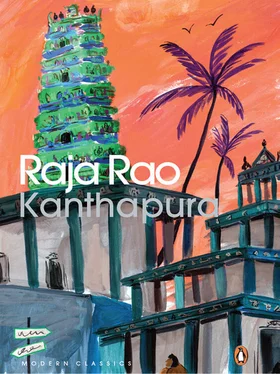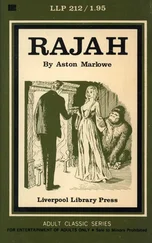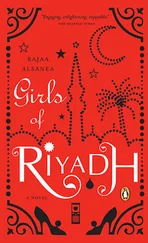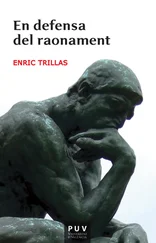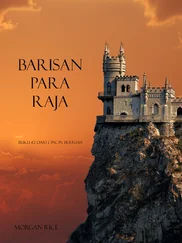Raja Rao - Kanthapura
Здесь есть возможность читать онлайн «Raja Rao - Kanthapura» весь текст электронной книги совершенно бесплатно (целиком полную версию без сокращений). В некоторых случаях можно слушать аудио, скачать через торрент в формате fb2 и присутствует краткое содержание. Год выпуска: 2014, Издательство: Penguin, Жанр: Классическая проза, на английском языке. Описание произведения, (предисловие) а так же отзывы посетителей доступны на портале библиотеки ЛибКат.
- Название:Kanthapura
- Автор:
- Издательство:Penguin
- Жанр:
- Год:2014
- ISBN:нет данных
- Рейтинг книги:3 / 5. Голосов: 1
-
Избранное:Добавить в избранное
- Отзывы:
-
Ваша оценка:
- 60
- 1
- 2
- 3
- 4
- 5
Kanthapura: краткое содержание, описание и аннотация
Предлагаем к чтению аннотацию, описание, краткое содержание или предисловие (зависит от того, что написал сам автор книги «Kanthapura»). Если вы не нашли необходимую информацию о книге — напишите в комментариях, мы постараемся отыскать её.
Kanthapura — читать онлайн бесплатно полную книгу (весь текст) целиком
Ниже представлен текст книги, разбитый по страницам. Система сохранения места последней прочитанной страницы, позволяет с удобством читать онлайн бесплатно книгу «Kanthapura», без необходимости каждый раз заново искать на чём Вы остановились. Поставьте закладку, и сможете в любой момент перейти на страницу, на которой закончили чтение.
Интервал:
Закладка:
And the old father, who was a retired taluk office clerk, knew how to write English, and he said he would address envelopes for Congress meetings, and sometimes he went to join Dasappa, who had opened a khadi shop in the town. And when Dasappa was ill or away on Congress duty, it was old Venkataramayya who looked after the shop, measuring out yard after yard of khadi and saying, ‘This is from the Badanaval centre, and that is from the Pariahs of Siddapura, and this upper cloth is almost the work of the Mahatma, for where do you think it comes from? — Sabarmati itself!’ And when a young man came to buy a towel or pair of dhotis he would say, ‘He, have you read the latest Young India?’ and if he should say ‘Nay,’ he would tell them they were a set of buffaloes fit to be driven with kick and knout, and thrusting the paper into the young man’s hands, he would offer him a chair and say, ‘Read this, it is useful,’ or, ‘Skip through this, it is less useful,’ and when children came he gave them pinches and peppermints and told them stories of Tilak and Gandhi and Chittaranjan Das, and such funny stories they were, too, that they called him Gandhi-grandpa. And his wife cooked food for the family and she said, ‘One day Sankar will earn as much as Advocate Ranganna, and he will buy a motor car, too,’ but Sankar laughed and said, ‘Mother, you must forget your dreams. Don’t you see I am not a man to make money?’ At which Satamma said this about what Ramachandra had said about Sankar’s reputation, and that about Professor Patwardhan’s appreciation: ‘Your son, Sankar, he is a saint,’ and when he walked the main bazaar, they used to say, ‘Look there, there goes the ascetic advocate.’ People sometimes looked at his khadi coat and his rough yarn turban and laughed at this ‘walking advocate,’ and others said, ‘No, no, he follows the principles of the Mahatma.’—’And what, pray, are the principles of the Mahatma?’—’Why, don’t you know Sankar does not take a single false case, and before he takes a client he says to him, “Swear before me you are not the criminal!” and the client says this and that, but Sankar always comes back to the point and says, “You know if you do not tell me the whole truth, well, I may be forced to withdraw in the middle of the case,”’ and, indeed, as everyone knows, he withdrew in the middle of the case between Shopkeeper Rama Chetty and Contractor Seenappa over false accounts, between Borèhalli Nanjunda and Tippayya, and you know how he withdrew in the last criminal case they had in Karwar. You see, this is what really happened. One Rahman Khan was supposed to have tried to murder one Subba Chetty, for Subba Chetty had taken away his mistress Dasi. And everybody said, ‘Poor Subba Chetty, poor Subba Chetty!’—and everybody said, ‘He will win the case easily.’ And Subba Chetty was an old client of Sankar and so he goes to Sankar and tells him the story and swears it is all true, and Sankar says, ‘Now this is going to be a criminal case, and if you have hidden a thing small as a hair, you will come to grief, Subba Chetty!’ And Subba Chetty sheds many a tear and says he is a good householder and he would never tell a lie and the lingam in his hand is witness to it. And Sankar takes the case and prepares the papers, and he says he will have to see Dasi, but Subba Chetty says, ‘Dasi is very ill, Father, but her word is my word and my word is hers,’ and Sankar says, ‘Bring her before the sessions,’ and Subba Chetty says, ‘If Siva wills, so it shall be,’ and Sankar says, ‘Then you may go’; and the case is filed and summonses are sent and the day of the hearing arrives, and Subba Chetty is the last to come and says the wheels broke down and the rains, how they poured, and this and that, and when Dasi comes to the bar she is as hale as a first-calved cow, and she turns this way and she turns that way and she does her hair and wipes her eyes and stands up and sits down and bites her sari-fringe, and Subba Chetty gets angry and says, ‘Stop this concubine show!’ And when the cross-examination begins it is Advocate Ramanna who begins to heckle her with questions, and Dasi breaks into a fit of sobs and says something and Subba Chetty cries, ‘Woman! Woman!’ and Dasi runs up to the advocate and falls at his feet and says, ‘I know nothing, Father! Nothing!’ And when Sankar hears that, he asks the judge for permission to speak to his client, and he says to Subba Chetty, ‘On your mother’s honour, tell me if you have not concocted the story to pinch Rahman Khan’s coconut garden?’ And Subba Chetty trembles and says, ‘No, no, Sankarappa!’ But Sankar has seen the game and he turns to the magistrate and says, ‘I beg to ask your Lordship for an adjournment,’ and the magistrate, who knows Sankar’s ways, says, ‘Well, you have it.’ When Sankar gets back home, he asks Subba Chetty to speak the truth, and Subba Chetty tells him how he had employed Dasi to go and live with Rahman Khan and to enrage him against Subba Chetty, ‘with drink and smoke and lust,’ and with drink and smoke and lust Rahman Khan had cried out he would murder that Subba Chetty and had run out with an axe and Subba Chetty had cried out, ‘Murder! Murder!’ in the middle of the street, and Dasi had run out innocently and tried to calm Rahman Khan, who was so weak that he had rolled upon the earth, an opium lump. And when Sankar heard this he said, ‘Go and confess this to the magistrate,’ and the next day the magistrate gave him three years’ rigorous imprisonment, with one year for Dasi. And Sankar asked pardon in public of Rahman Khan, who got six months, too.
It is from that day that people said, ‘Take care when you go to Sankar; he will never take a false case.’ And he took but the lowest fee, and when the clients were poor he said to his clerk, ‘Make an affidavit for Suranna’s Dasanna. Stamps, private account, please,’ and people began to come to him more and more and never was there a man in Karwar that had risen so quickly in public esteem and legal success as he. But he never bought a car and never dressed in hat and shoes and suit, and always smiled at everyone. And when the court was over he did not go like Barrister Sastri and Advocate Ramrao to the Bar Club to have whisky-and-soda and God knows what, but he went straight to the floor above the khadi shop, where the new Hindi teacher Surya Menon held classes, and when Sankar had time he divided the class into two and gave a lesson to the latecomers. He said Hindi would be the national language of India, and though Kannada is good enough for our province, Hindi must become the national tongue, and whenever he met a man in the street, he did not say ‘How are you?’ in Kannada, but took to the northern manner and said ‘Ram-Ram.’ But what was shameful was the way he began to talk Hindi to his mother, who understood not a word of it, but he said she would learn it one day; and he spoke nothing but Hindi to his daughter, and if by chance he used an English word, as they do in the city, he had a little closed pot, with a slit in the lid, into which he dropped a coin, and every month he opened it and gave it to the Congress fund. And if any of his friends should utter an English word in his house, he would say, ‘Drop me a coin,’ and the friends got angry and called him a fanatic; but he said there must be a few fanatics to wash the wheel of law, and he would force his friends to drop the coin and if they refused he dropped one himself.
And he was a fanatic, too, in his dress, you know, sister. When he went to a marriage party he used to say, ‘Everyone must be in khadi or I will not go,’ and they said, ‘Oh, one must have a nice Dharmawar sari for the bride; she cannot look like a street sweeper,’ and he would say, ‘Well, have your Dharmawar saris and send your money to Italian yarn makers and German colour manufacturers and let our Pariahs and peasants starve,’ and when they pleaded, ‘Just one Dharmawar sari?’ he would say, ‘I am not the head of the family, but if you wear anything but khadi I will not go!’ And that is how nobody in their house nor in their cousin’s house had any new Dharmawar saris, and when they went for any kumkum and haldi invitation, they put on their old saris and slipped out through the back door. And he also made the whole family fast — fast on this day because it is the anniversary of the day the Mahatma was imprisoned, fast on that day for the Jallianwalabagh massacre, and on another day in memory of the day of Tilak’s death, and some day he would have made everyone fast for every cough and sneeze of the Mahatma. ‘Fasting is good for the mind,’ he would say, and even on the days he fasted he was in full spirits and went to court and spun his three hundred yards of yarn every morning instead of his prayers, and he said the gods would be happy when the hungry stomachs had food.
Читать дальшеИнтервал:
Закладка:
Похожие книги на «Kanthapura»
Представляем Вашему вниманию похожие книги на «Kanthapura» списком для выбора. Мы отобрали схожую по названию и смыслу литературу в надежде предоставить читателям больше вариантов отыскать новые, интересные, ещё непрочитанные произведения.
Обсуждение, отзывы о книге «Kanthapura» и просто собственные мнения читателей. Оставьте ваши комментарии, напишите, что Вы думаете о произведении, его смысле или главных героях. Укажите что конкретно понравилось, а что нет, и почему Вы так считаете.
